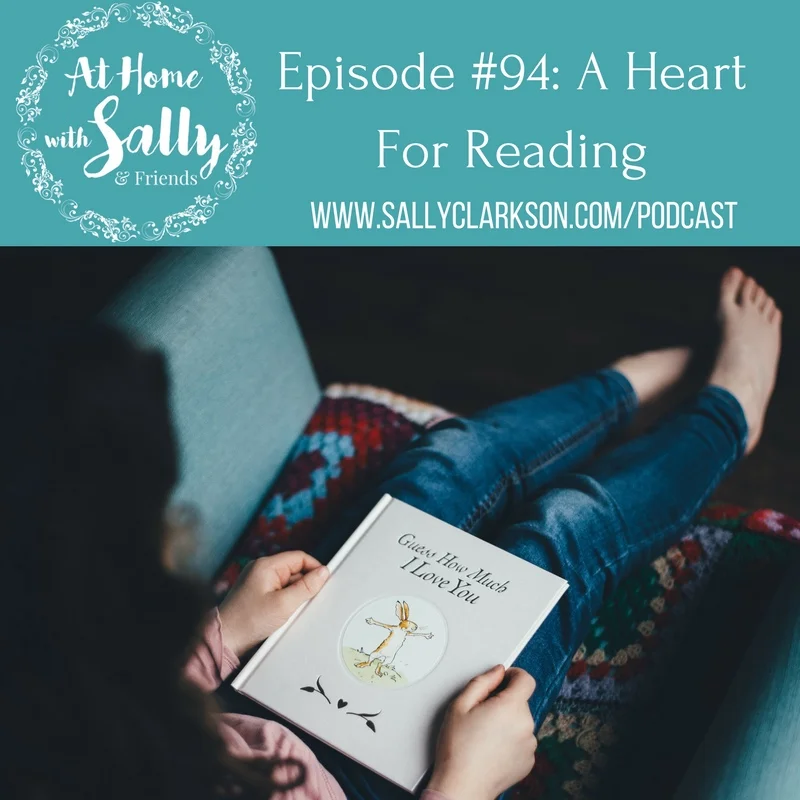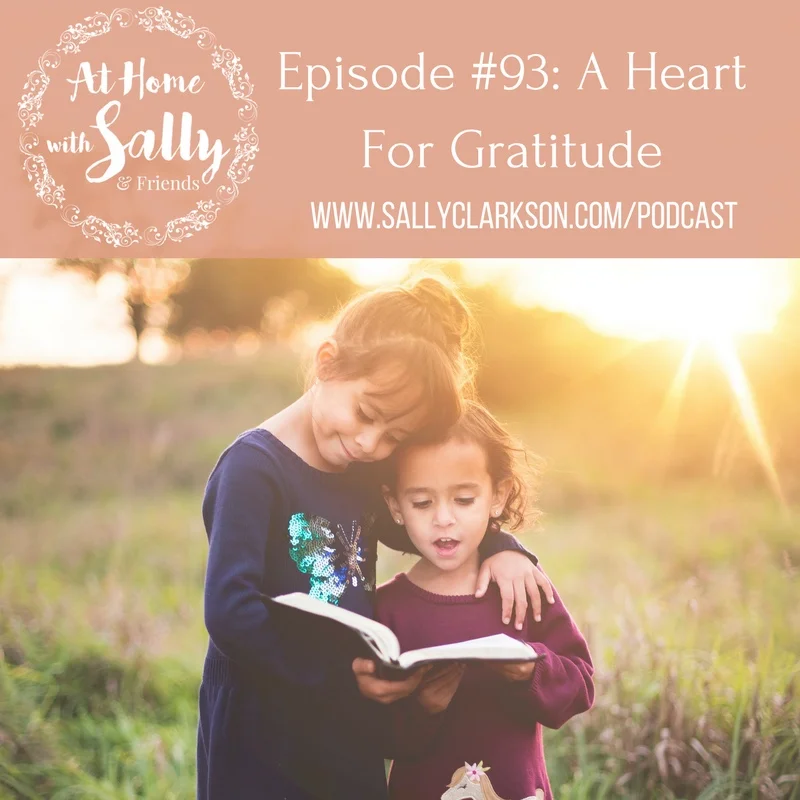I have come to believe that the success or failure of every woman who hopes to build her children into a godly legacy depends to a great degree on whether or not she is spending time in the presence of the Lord and filling her mind with His Word ...
WWII Books for Children
Crow Call
A hushed, contemplative picture book based on an episode from the author’s own childhood. What happens when a father returns from war, a stranger to his child? Gentle, honest, a tale that examines one of the difficult aspects of war with real tenderness.
Escape From Warsaw
A classic, long beloved tale of a family separated by war, and determined to find their way back to each other. With both of their parents arrested by Nazis, Ruth, Edek, and Bronia must fend for themselves until they meet a boy who tells them that their father is alive and waiting for them… in Switzerland. Thus begins a dangerous journey across war torn Europe as the children fight to survive and find their father.
I Am David
I read this book as an adult, and it startled me with its beauty. The story of a boy who has known nothing but a concentration camp, and how he learns what it means to be, not merely physically free, but liberated in heart as well, free to take on the bonds of love.
Irena's Jar of Secrets
A picture book telling of the true story of a young Polish woman who was a nurse during the Nazi Occupation and helped to save the lives of hundreds of Jewish children.
Number the Stars
The story of ten-year-old Annemarie Johansen who becomes caught up in the Danish Resistance during the Nazi Occupation when the life of her best friend is endangered.
No More Words, Please!
As I am watching all the pictures sweet friends are posting about their children's back to school days, this story I wrote many years ago about a day full of talking, talking, talking seems both far away and closeby--especially because our days still seem bound to be full of conversation ...
A Heart for Reading {And Music}: Sarah Clarkson Remembers
This is the last week of our series, 10 Gifts of Heart. This weeks' gift is giving your child the heart for reading and thinking. Because Sarah Clarkson, Sally's daughter, just graduated from Oxford and has said that a love for reading was what gave her a desire to ...
Food for Thought
It seems many are preparing for the eclipse which will take place in a few weeks, and there's a meteor shower happening this weekend, as well. Such a gift, to be able to plan ways to enjoy such displays with our children, whether waking them up in the middle of ...
Storyformed Podcast Episode #12 - Encouraging a Love of Art Through Stories
In this episode Holly Packiam and Jaime Showmaker encourage and inspire listeners to cultivate a love of art through stories. The ability to participate in God's presence through viewing beautiful works is a gift of being created in His image ...
Practicing Believing and Walking In Faithfulness
Life with children can be, or perhaps just plain is, messy. It is one drama after another with teens. Inevitably there's one mess after another with all ages of families, as they always seem to keep eating and ...
A Heart for Gratitude- The Gift of Living Thankfully
Do your children hold wonder about God? Do they have an imagination that allows them to enter into the mystery of all He has made and all He has done?
The End of a Busy, Exciting Week!
Here we are, at the end of one wonderful, wacky week! I've been hosting Nathan's wonderful film crew, making meals, picking up visitors, having great conversations, and sharing the bursting life that's been filling our four walls all week long. What a joy to have so much happening, even when I find myself collapsing into bed at the end of such busy days!
"From the time they were little, our children were included in our hospitality efforts. When we were expecting guests, each child was given a task to complete to make our table ready. Setting the table, cutting flowers, lighting candles, putting on music, cooking, meeting guests at the door, and making them feel welcome in our home were standard responsibilities shared by us all. Because we wanted our children to learn conversation skills, each one was to think of one question to ask our guests. There were even times when they were asked to give up their room or their bed for someone who was staying with us—a great lesson in serving.
Another important way we taught hospitality to our children was encouraging them to invite their friends over as often as possible. We served juice and cookies to toddlers, lemonade and sandwiches to ten-year-olds, pizza and popcorn to teens, and enough chocolate chip cookies to fill a fleet of semis. We opened our rooms and our yard to study groups, kids’ clubs, and lots and lots of games. In the process our kids learned even more about what it means to welcome and serve others." ~ The Lifegiving Table
And so here we are once again, practicing what we've preached, and loving every moment of it.
I hope you are enjoying these last few days and weeks of summer! There's been so much happening here I don't want you to miss:
This week's podcast, here: A Heart for Patience
A very exciting announcement about my upcoming Membership site
Bible memory printable: Week 9 Bible Memory
The Story of the World's Best Luck
Perhaps the best-read book of all time is the Bible. But what kind of book is the Bible? Among many things, the Bible is a story—the Greatest and Truest Story of all. There are many ways of narrating this Story, but I love the way my husband, Glenn Packiam, did in one of his books, Lucky. Here’s an adapted excerpt.
In the beginning, God. A good God made the world, and He called it good. This is how the Story begins. Man and woman were made to be God’s image-bearers, the ones who would rule over creation and care for it in God’s name and as God would, the ones who would most fully reflect Him. They were to multiply, producing other image-bearers who would reflect and reveal God, and in doing so would cover the earth with His glory.
But the image-bearers were not content to be with God; they wanted to be like Him. More than bearing His image they wanted His power, His autonomy, His unbounded freedom. For the creature to seek freedom from the Creator, to desire to be the Creator, is to say “I don’t need You. I am better without You.” It is an affront to the Creator, the ultimate insult. This rebellion was the beginning of evil in the creature and the end of perfectly bearing the image of the Creator. From that moment on, the image was marred, stained, tainted by the rebellion.
Because we are still bearers of God’s image we have some idea of how things should be, how the song should go, what the painting should look like. And yet because that image in us has been tainted by our sin, we recognize when there is injustice, we know that the song is being sung out of tune, that the painting has been smeared, that all is not as it should be.
Most religious stories get their shape by a human search for God. A prophet wanders off in the wilderness in search of God. Or a wise philosopher climbs the mountain to ponder truth. Or the old sage begins a quest for truth. But this Story does not begin with a man or woman searching for God. When the image-bearers realize that their attempt at living independently of their Creator has left them frail and vulnerable, they hide. Man and woman are not searching for God; they are hoping to avoid Him altogether. It is God then who says to Adam, “Where are you?”
From the beginning, God. God who is calling, God who is choosing, God who is blessing. Adam had been blessed by God, commissioned to multiply, to fill the earth with other image-bearers so that the world would be filled with the glory of God. Adam chose to attempt autonomy instead. Adam’s descendants are a mixed garden of grass and weeds; there are those who listened to God’s call, some with remarkable intimacy like Enoch, and those who ignored it, some with astounding audacity like Cain.
The rebellion of the image-bearers reached a condensation point, and the sky became heavy with God’s judgment. It rained and rained and rained. When Noah and his family, singled out by God to survive these torrents, set foot on a land ready to bloom with new life, God re-issued His blessing: multiply, cover the earth with men and women who know God and reflect His image. Noah filled the earth, but with more fallen image-bearers. If God was going to show the world what He was like, it had to begin slowly, with one family, a family through whom all other families could be blessed.
So God blessed Abraham. Abraham’s blessing was special. It wasn’t simply to re-create, to multiply. It was a call to carry the blessing to the world. To be clear about His plan, God didn’t stop with blessing Abraham; He blessed Abraham’s son, Isaac, and He blessed the son who got Isaac’s blessing, Jacob, through the man who wrestled with him until daybreak. The ones who received this blessing are forever remembered when this God is named. He is the God of Abraham, Isaac, and Jacob.
As the seed of Abraham multiplied, it is they who did the blessing, passing on what Yahweh had given them. They were not merely fallen image-bearers; they were to be luck-bearers. They carried God’s blessing, and they were to bring it to the world.
In Frederick Buechner’s novel of Jacob’s life, he describes the moment that Jacob realizes the significance of his children, born from four different mothers, but of the same seed:
I was like a man caught out in a storm with the wind squalling, the sand flailing me across the eyes, the chilled rain pelting me. The children were the storm, I thought, until one day, right in the thick of it, I saw the truth of what the children were…
…They were the dust that would cover the earth. The great people would spring from their scrawny loins. Kicking and howling and crowing and pissing and slobbering food all over their faces, they were the world’s best luck.
The world’s best luck. The world’s best chance of being renewed, of being restored with their Creator, would come through this nation, this people, Israel.
But this people chosen to carry luck to the world failed to keep listening to the Creator. There were glimmers of remarkable radiance, when they were a light unto the nations. Yet they set up golden calves, images borrowed from their pagan neighbors, and called them Yahweh. They forgot that when God told them to have no other gods He was telling them that He was enough for the. By using other gods to secure their wishes and control their outcomes, they were repeating the sin of their first Father and Mother: they were becoming a god unto themselves.
CLICK HERE to read more Storyformed.com.
















